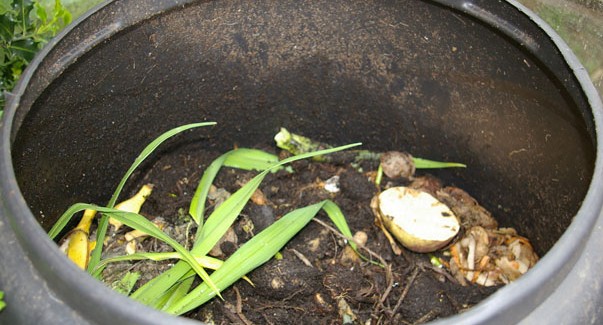Your cart is empty
Composting
Nature has been building soil for years through the natural decomposition of plant and animal material. Most of this decomposition takes place under vegetation that drops its material (i.e. dead leaves). Under the canopy of the plant, this decomposition continues to enrich the soil and feed the plant.

Through composting, we can duplicate this process in our own back yards. To help you get started, here are a few basic rules:
Place a three-sided bin on a north or east-facing wall that is at least 4 feet high and 4 feet wide. Hay bales, concrete blocks or old pallets work well. An enclosure is not always necessary, but it does allow you to contain any debris that might otherwise blow away.
Layer 50 percent brown material (i.e. old leaves, dried grass clippings, small branches) with green material (i.e. fresh grass clippings, old vegetables that are not completely dried out). As you layer the materials in your bin, keep them as wet as a wrung-out sponge.
Use a pitchfork or shovel to turn the compost pile every four to eight weeks. The more often you turn it, the faster the material will decompose into a deep, rich soil. To help speed things along, I occasionally spray a can of Pepsi or a solution of 2 tablespoons molasses per gallon of water. With sugar, the microbes that help decompose material become excited and work harder at breaking down the material. Hint: When you can’t recognize any of the ingredients in the compost heap and it takes on a rich, moist texture, your compost heap is ready for use.
Apply the compost around your garden to prevent weeds and diseases. This will also reduce your garden’s water needs and makes a great fertilizer.
Compost is the basis of every great garden. Without it incorporated into our soil or top-dressed onto the soil, you cannot achieve a rich, healthy, great-looking garden.
For more information, call the City of Phoenix, (602) 534-3333, or ADEQ at (602) 207-4123, 1-800-234-5677, ext. 4133, or 1-800-253-2687.

